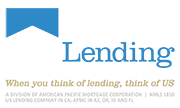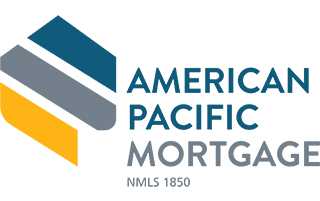Common Questions: Closing Costs
Imagine yourself purchasing your first home. You’ve found the perfect house for you and your family, you’ve saved up for a down payment, filled out all the paperwork, and made an offer on the house. You can see the end in sight! Then, out of nowhere, you start to see all these unexpected costs coming in. Underwriting? Title and escrow processing? Closing costs can be a frustrating barrier to overcome before crossing that finish line. But if you educate yourself and prepare for these costs from the beginning, you’ll sail through that finish line without any unexpected bumps in the road.
We got a chance to sit down and chat with Julie Tully, who has worked at US Lending for over 17 years. With a background in title and escrow, she is one of our experts when it comes to closing on a home.
What are closing costs?
Closing costs include processing and underwriting for a home loan, title and escrow. If you’re in a purchase transaction, typically that cost is split with the seller. You’ll always have an appraisal fee, which is out of pocket, and then your impounds for taxes and insurance. If you want to pay those monthly with your loan you need to set up a reserve account for that. If you want to pay it separately outside of your home loan, you’re able to do that and not need the impound account. So that can affect your bottom line closing cost.
How can I reduce closing costs?
If you’re looking to reduce your closing costs for your purchase, the best way to do that is to negotiate with the seller. With a good realtor, you can usually get all the closing costs paid by the seller, and then negotiate that into the purchase price. You can also generally get the seller to reduce the purchase price by asking them to cover your closing costs.
How much can I expect to pay?
The national average is 3% of your purchase price. Of course, these numbers fluctuate and change by the situation, but this is a good rule of thumb to use as an estimation. If you’re trying to determine if you’re ready to purchase, simply add in that 3% to your overall budget to account for closing fees.
The bottom line is that closing costs are inevitable. In every real estate transaction, these fees will always be present. You just have to decide how you choose to pay them. You may see claims of “no closing costs” here and there, but make sure to do your research in these situations and remember that the closing costs are there somewhere! Many times they will give you a higher interest rate, which gives you a credit back to cover those closing costs. You’ll just pay it over the lifetime of your loan instead of up front. We hope that this chat with Julie gave you some piece of mind as you approach the finish line, and made you feel empowered to make the best decision for you!
The views, articles, postings, and other information listed on this website are personal and do not necessarily represent the opinion or the position of American Pacific Mortgage Corporation or US Lending Company.
* For loan examples and more information visit our disclosure page at https://www.uslendingcompany.com/disclosures/





